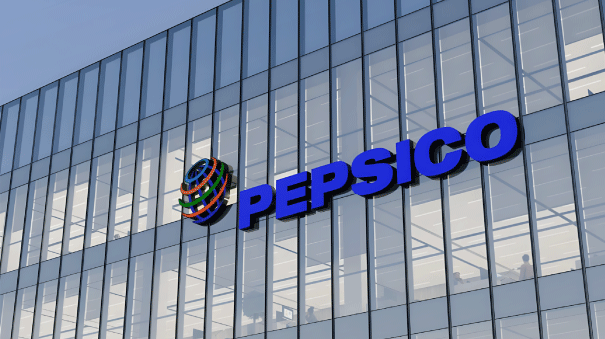Introduction
In the modern enterprise landscape, IT is the backbone of daily operations and long-term growth. However, the true potential of IT lies in its ability to enable a seamless digital workplace experience, fostering productivity, collaboration, and innovation. This is where managed IT services step in, empowering businesses with efficient, secure, and scalable IT solutions. By leveraging managed IT services, organizations can focus on their core business objectives while transforming the way employees interact with technology. The benefits of managed IT services extend far beyond simple IT support, enabling many businesses to maintain competitive advantages through comprehensive managedsolutions. Managed service providers offer extensive services for your business that help businesses achieve their business goals while reducing the burden on internal teams.
What is Managed IT Services?
Managed IT services services refer to the outsourcing of IT operations to a professional managed IT service provider who ensures the seamless functioning of IT infrastructure through proactive monitoring, maintenance, and support. Beyond traditional IT management, these services provided by a reliable managed service provider play a critical role in enhancing the digital workplace experience by integrating advanced tools, securing operations, and ensuring uninterrupted workflows. From maintaining networks to implementing scalable solutions, enterprise managed IT services help businesses stay ahead in an increasingly tech-driven world. Managed service providers offer comprehensive managed IT management services that enable businesses to maintain optimal performance while focusing on core business activities. These services are extensive and designed to meet diverse business needs through a structured managed services model.
Challenges of Managed IT Services
1. Vendor Dependence
While a managed IT service provider can centralize and streamline operations, many businesses should ensure they partner with a reliable managed service provider capable of delivering flexible solutions to avoid over-reliance on a single vendor. Choosing the right managed service provider is crucial for long-term success, and many managed service providers offer different managed services model approaches to meet specific organizational requirements.
2. Cost Considerations
Although initial costs of managed IT services may seem significant, the business benefits and long-term savings in resource optimization, reduced downtime, and lower overhead far outweigh these investments. Small and medium-sized businesses can particularly reap the benefits of predictable managed services pricing models that eliminate the need for extensive in-house IT infrastructure investments.
3. Data Privacy Concerns
Many businesses often worry about entrusting sensitive data to external service providers. Choosing the right managed IT services companies with strict compliance and robust managed security services mitigates these concerns, ensuring data protection without compromising the digital workplace experience. Reliable managed services include comprehensive security protocols that protect sensitive business information.
4. Customization Issues
A generic approach to managed services may not align with every enterprise’s unique business needs. It’s essential to collaborate with managed service providers offering tailored solutions that enhance IT performance and overall business operations efficiency. Look for in a managed service provider that understands your specific industry requirements and can adapt their services for business accordingly.
5. Downtime During Transition
Transitioning to managed IT service solutions can occasionally cause temporary disruptions. However, experienced managed IT service providers minimize these disruptions, enabling enterprises to maintain continuity and productivity through comprehensive support services. Working with a managed service provider that has proven experience ensures smoother transitions and minimal business operations impact.
5 Key Benefits of Managed IT Services for Enterprises
1. Cost Optimization and Predictable Budgeting – Key Benefits of Managed Services
By outsourcing IT to a managed IT service provider, enterprises eliminate the need for maintaining costly in-house teams and infrastructure. One of the biggest benefits of managed services is predictable service plans that enable smarter financial planning, freeing resources for strategic initiatives that elevate the digital workplace experience. Managed IT services provide significant business benefits through reduced operational costs and improved resource allocation, making them ideal for small businesses and enterprises seeking cost-effective IT solutions. The benefits of using managed services extend to better budget control and eliminated unexpected IT expenses, allowing organizations to allocate resources toward core business growth initiatives.
2. 24/7 IT Monitoring and Proactive Issue Resolution – Advantages of Managed IT Services
Continuous monitoring and proactive issue resolution prevent disruptions that could hinder productivity and business operations. With remote IT managed services, businesses can ensure uninterrupted workflows through comprehensive support services, allowing employees to focus on achieving their business goals. Managed service providers offer round-the-clock monitoring that services ensure optimal system performance and minimal downtime. These services enable businesses to maintain productivity while managed services enable businesses to operate with confidence knowing their IT infrastructure is constantly monitored. Managed IT services ensure you’re always equipped with the latest monitoring technologies and expert support.
3. Enhanced Security and Risk Management – Benefits of Managed Security Services
Cybersecurity is integral to a seamless digital workplace experience. Managed IT services companies provide robust managed security services to protect against data breaches, malware, and other threats, ensuring employees can work confidently without fear of cyber risks. These comprehensive security services are essential for protecting sensitive business data and maintaining business operations continuity. Managed services provide advanced security protocols, including disaster recovery services and managed backup solutions that services can help organizations recover quickly from potential threats. The importance of managed security cannot be overstated in today’s digital landscape where cyber threats continue to evolve.
4. Access to Advanced Technology and Expertise – Choose Managed IT Services
With managed IT services, businesses gain access to the latest technology and expert guidance from experienced managed service providers. This empowers teams to leverage cutting-edge tools and solutions, creating a more productive and collaborative workplace. Managed IT service providers offer access to software and services that would be cost-prohibitive for most organizations to maintain in-house. Services include access to advanced cloud computing platforms, specialized application services, and expert consultation that help businesses stay competitive. Managed services enable organizations to benefit from enterprise-grade technology without the associated overhead costs.
5. Scalability and Flexibility for Growing Enterprises – Managed Services Model Benefits
As enterprises evolve, so do their business needs. Managed IT infrastructure services provide the flexibility to scale operations effortlessly through comprehensive managed solutions, ensuring that the digital workplace experience remains efficient and adaptable to growth. Managed service providers offer scalable solutions that grow with your business, supporting expansion without compromising performance. As your business grows, managed services can seamlessly adapt to increased demands, additional users, and expanded technological requirements. The managed services model allows organizations to use a managed service approach that scales resources up or down based on current needs, providing optimal cost efficiency.
Why Choose Managed IT Services?
A seamless digital workplace experience is no longer optional – it’s essential for many businesses aiming to thrive in competitive markets. Without managed IT services, enterprises face challenges like downtime, outdated systems, and inefficient resource utilization. By partnering with a managed service provider, organizations unlock the potential for improved productivity, smarter resource allocation, and robust managed security services. Whether for small businessesor large enterprises, the benefits of managed IT services are indispensable for modern business operations. Managed service providers offer comprehensive managed solutions that address diverse business needs while ensuring optimal IT performance. The managed services market continues to grow as more organizations recognize the major benefitsof outsourcing IT operations to experienced service providers. Choose managed IT services to enable businesses to maintain competitive advantages while focusing on core business activities. Managed IT services have becomeessential for organizations seeking to leverage technology effectively while minimizing operational complexity.
Conclusion
In today’s dynamic business environment, managed IT services are more than just a support services function – they are the driving force behind a modern digital workplace experience. From enhanced managed security services and proactive monitoring to cost optimization and scalability, the benefits of managed IT services enable businesses to achieve peak productivity and operational efficiency. Choosing the right managed IT service provider is the first step toward transforming your workplace into a hub of innovation, collaboration, and success. The advantages of managed services extend across all aspects of business operations, making them essential for organizations seeking to maintain competitive advantages in an increasingly digital world. Partnering with a managed services provider allows organizations to focus on their core business while ensuring their technology infrastructure remains robust, secure, and efficient. The key benefits of managed IT services continue to drive adoption across small and medium-sized businesses and large enterprises alike, as the managed services market continues to grow and evolve to meet changing business demands.
Discover fluidPro AI-led Managed IT services today!

